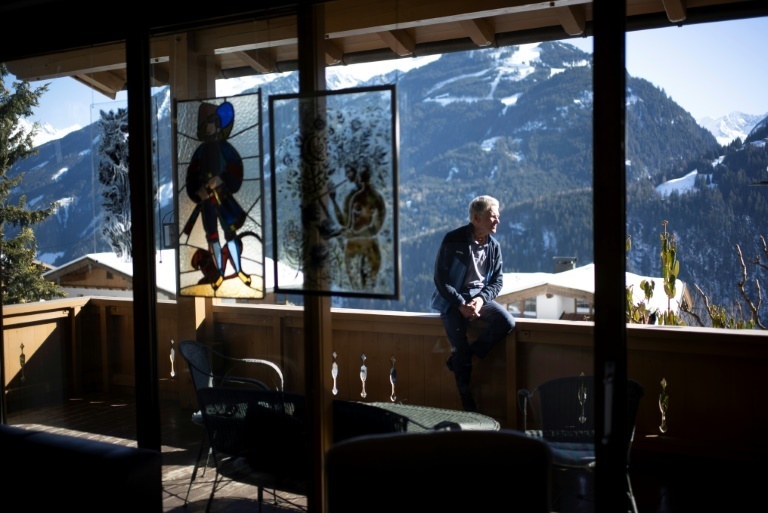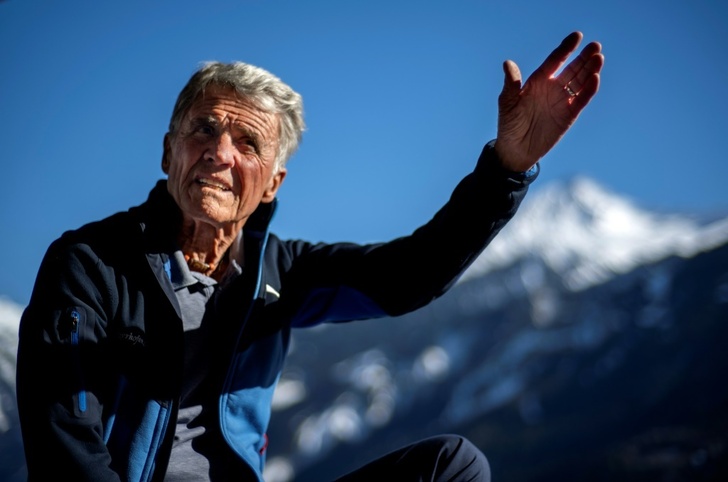He's over 80, but the Austrian climber Peter Habeler -- one half of the duo that was first to scale Everest without supplemental oxygen -- is still fantastically fit and scaling mountain peaks, which he calls his "fountain of youth".
Many thought it impossible when he and Reinhold Messner of Italy -- both Tyroleans -- set out to conquer the world's highest peak in 1978 without additional oxygen.
When they reached the summit, "I was beside myself," the mountaineer told AFP at his home in western Austria, feeling "happiness and also sadness and fear".
"The higher we got, the slower our steps became. But the more certain we became that we would reach the summit," he said.
As soon as he and Messner -- who is from just over the Zillertal Alps in Italy -- took their "obligatory" summit photo, "I thought, 'How do I get down?'"
Climbers who go above 8,000 metres enter what is considered the "death zone" due to the lack of sufficient oxygen to sustain human life for long periods.
At 8,848 metres (29,032 feet), Everest was deep in that danger area.
Habeler still recalls his "jitters", wanting to return safely to his family.
"We didn't know what would happen with the brain, what would happen with the muscles," he said.
Since then, numerous climbers have summited the world's highest mountain without carrying oxygen, even though more than 300 have lost their lives on the Nepalese peak since 1950.

- Peaks are 'friends' -
Even into his ninth decade, he continues to climb, describing mountains as "friends" which have brought him experiences as precious as "splinters of diamonds".
Climate change, however, is posing "a huge problem", he said, including in his native Alps, with entire routes expected to disappear as warmer temperatures melt permafrost, raising the risk of rock falls.
A champion of sustainable tourism, Habeler started out as a mountain guide, and one of his sons still runs the ski school he set up in his native Mayrhofen.
The veteran insisted that he was "never a mountain collector" chasing records, but instead wanted to "open the door" for himself and others -- to show that it could be done.
- 'I'm a minimalist' -
A few years after Everest, and spending time in his native valley, "the eight-thousander fever got me a bit again," and he did several more big climbs -- though never again with Messner.
Messner, now 78, went on to become the first to climb all the world's 14 highest peaks, the so-called eight-thousanders.
"You could do anything with Reinhold," said Habeler, thanking Messner for helping him to overcome his jitters on Everest.
For his part, Messner wrote a tribute to the "ingenious" Austrian in Habeler's latest book.
"I experienced it as a sure instinct. He can simply climb mountains: in any terrain, at any height, under any circumstances," Messner wrote.
Indeed, at the ripe old age of 74, Habeler set another record, becoming the oldest mountaineer to climb the north face of the Eiger in Switzerland with his former student David Lama, then aged 26.
Lama's death two years later in an avalanche in Canada's Banff National Park still brings tears to Habeler's eyes.
The accident made Habeler more cautious, though he still continues to climb mountains with as little material and outside help as possible.
"I am a minimalist. When I'm mountaineering, I always have the minimum. I don't want to have too much in my backpack," he said.
While Habeler's parents were not mountaineers, he credited the mountain guides and others "who bring out the best in you" for helping him get to the roof of the world.
jza/kym/cw/fg/jmm/smw
© Agence France-Presse
Your content is great. However, if any of the content contained herein violates any rights of yours, including those of copyright, please contact us immediately by e-mail at media[@]kissrpr.com.
Source: Story.KISSPR.com

